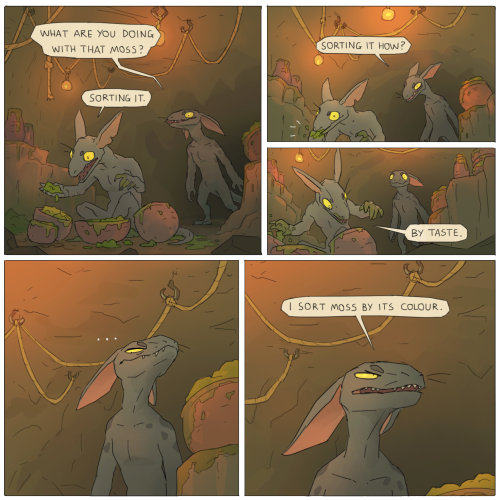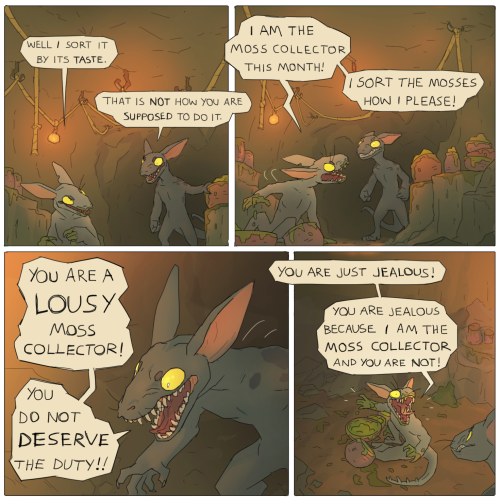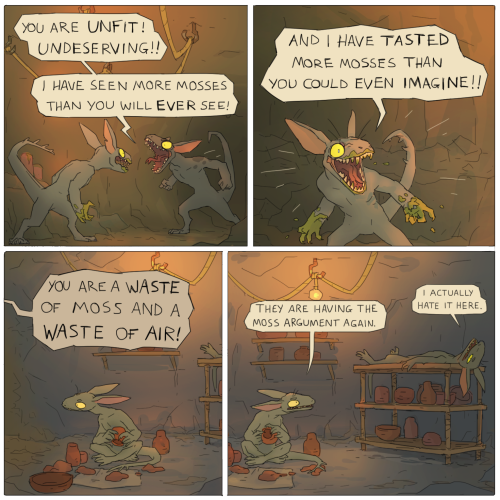I Realized Now I That I Have Tumblr I Can Post Anything Tf I Want. Maybe It Will Reach Out To More People.
I realized now I that i have tumblr i can post anything tf I want. Maybe it will reach out to more people. So here is a video of my cats
More Posts from Souppooppie and Others
so far in life ( i think ) i never make choices around my chronic pain.
It's either the internalized ableism that ruled over or my poor decision making skill that holds the wheel

I love you tragedy I love you corruption arcs I love you doomed relationships I love you character succumbing to their fatal flaw I love you codependency I love you characters doomed to die from the start I love you road to hell paved with good intentions



lost in the moss
No that's okay I wasn't using my heart for anything today.


I legit thought i don't have RSD until my cousin jokingly said ' bitch ' when we were joking around.. and i shit you not shit hurted like bitch... (ノಥ益ಥ)ノ
What can Magical Girl Shoujo and Action Hero Shounen manga/anime tell us about perceptions of womanhood and manhood? And how different priorities for genders get expressed in media
Let’s imagine a typical Magical Girl Shoujo anime. It usually starts with a normal girl, on the cusp of puberty or a teenager, who suddenly discovers some magical artifact or innate part of herself that connects her to a magical destiny. There is usually no choice in the matter; she is (along with some select friends) the only one who can do the magical move that prevents demons/aliens/enemies from destroying her home (or even the whole earth). Her status as a magical hero is not one that’s earned, but rather a responsibility thrust upon her.
Meanwhile Action Hero Shounen tends to be about a boy, also often on the cusp of puberty or a teenager, who goes on a deliberate journey to attain a particular status or power. In some cases he may get one advantageous power at the start, but it’s usually up to him to make it useful and achieve his dream. His story often involves trials, tournaments, and intense battles that slowly ramp up until he becomes the most powerful (or achieves whatever status he dreamed of). That status is one that is earned, not given.
Do these differences sound familiar? If so, you may know about the theory of Precarious Manhood (Vandello & Bosson 2013 has great coverage on the subject). The theory suggests that womanhood is secured (or forced) naturally as a girl grows up; she just is a woman, and that status is generally not called into question on a regular basis. Meanwhile manhood is something that must be earned and can be easily lost; a man must continually “prove” his masculinity to maintain that he is a man. We see this reflected in the two genres I described: The Magical Girl just is the hero, while the Action Hero must become the hero. These genres are targeted towards the demographic of their main characters, kids and teens, and they reflect the values, struggles, and anxieties those demographics carry.
The Magical Girl genre focuses on a lot of girls' fears about growing up—there’s a sense of power that comes with it, but it comes at a cost. The conflicts in these shows often aren’t centrally the monsters or battles, but rather interpersonal dramas and work-life balance. To a teenage girl, having a friend group falling out can feel catastrophic, reflected in how a Magical Girl may cause a literal catastrophe unless she can get everyone to work together to defeat an enemy. Another huge conflict is balancing saving the earth and maintaining friendships, romance, work, and grades. Lots of girls get pulled in many directions at this age, and if one is expected or needs to help out around the home she has yet another responsibility on her plate that makes time management a relevant issue.




Within the Action Hero genre the fears and issues are of a different variety. There’s a focus on continual growth, best friends, and achieving milestones. Conflicts generally come down to power struggles, though there’s often an emotional component as well. The deciding factor is often willpower, or how much effort (regardless of the danger to his own safety) a boy is willing to put in to beat an enemy. At this age friendships are often built on sports, games, and competition, and there’s many anxieties about being “manly” enough (or sometimes just not wanting to be feminine because of the mockery that entails).


The differences in the genres clearly reflect gender norms/anxieties regarding femininity and masculinity for their demographic… and also enforce them. Girls are taught that their job is not to reach out and take power, but instead to play a careful balancing game with whatever power/responsibilities they are given (though it's notable that in these magical stories, they happen to be given huge power to work with). Boys are taught that they must wear themselves out, constantly putting themselves in danger and forcing their limits if they want to feel like they have worth or to "be a man".
What would challenging or reversing these expectations be like? Hmm…
Sailor Moon, with Action Hero Conventions
Usagi is just a normal clumsy girl, but one day she sees a cat being harassed by some kids on the way to school. She saves the cat, discovers her name is Luna, and that she’s actually from another planet! There is a secret elite task force, known as the Sailor Scouts, who fight against aliens trying to take over the earth. Luna says that she came to Earth to look for a human who she could train to defeat the evil Queen Beryl, which will also earn the human the right to be the next ruler of the moon. Though Usagi finds it strange and a little scary, when some of Queen Beryl’s minions come down to earth and endanger her friends, she decides to begin her quest to become a Sailor Scout! She’ll have to learn to be more coordinated and pass the Sailor Scout exam first, then battle with other Sailor Scouts to convince them to join her party, but eventually she’ll build up the power and strength to take on Queen Beryl and to become the Queen of the Moon!
Hunter x Hunter, with Magical Girl Conventions
Gon is just a normal boy who loves nature. As he is walking through the woods one day, he meets a mysterious tall man, Kite. Kite says he recognizes him; he knew Gon’s father and knows that Gon has inherited something important: The blood of a Hunter, AKA someone fated to be a guardian of the island he lives on. He has also inherited a special move: “Rock”, a magical punch that can break through anything. There are a few other Hunters Gon must find, add to his party, and work together with to defeat the Phantom Troupe, an evil group with great powers who are trying to invade his peaceful island. Gon is excited to be a Hunter like his father, but right now he lives with his aunt who hates Hunters, so he has to sneak around when protecting his island so she doesn't find out! It’s hard to balance being a normal kid and protecting his island, but with his new friends he hopes to do it all!
These are obviously simplifications of the plots of Sailor Moon and HxH, but it’s an interesting thought experiment. How would girls feel about a plot where a girl has to build up her powers and train? How would boys feel about a plot where the power/rank is almost never in question, but relationships and balancing responsibilities is? If you know any anime/manga that fit or challenge these patterns, I’d love to know your examples.
this is one of my favorite videos ever
When I was younger and more abled, I was so fucking on board with the fantasy genre’s subversion of traditional femininity. We weren’t just fainting maidens locked up in towers; we could do anything men could do, be as strong or as physical or as violent. I got into western martial arts and learned to fight with a rapier, fell in love with the longsword.
But since I’ve gotten too disabled to fight anymore, I… find myself coming back to that maiden in a tower. It’s that funny thing, where subverting femininity is powerful for the people who have always been forced into it… but for the people who have always been excluded, the powerful thing can be embracing it.
As I’m disabled, as I say to groups of friends, “I can’t walk that far,” as I’m in too much pain to keep partying, I find myself worrying: I’m boring, too quiet, too stationary, irrelevant. The message sent to the disabled is: You’re out of the narrative, you’re secondary, you’re a burden.
The remarkable thing about the maiden in her tower is not her immobility; it’s common for disabled people to be abandoned, set adrift, waiting at bus stops or watching out the windows, forgotten in institutions or stranded in our houses. The remarkable thing is that she’s like a beacon, turning her tower into a lighthouse; people want to come to her, she’s important, she inspires through her appearance and words and craftwork. In medieval romances she gives gifts, write letters, sends messengers, and summons lovers; she plays chess, commissions ballads, composes music, commands knights. She is her household’s moral centre in a castle under siege. She is a castle unto herself, and the integrity of her body matters.
That can be so revolutionary to those of us stuck in our towers who fall prey to thinking: Nobody would want to visit; nobody would want to listen; nobody would want to stay.